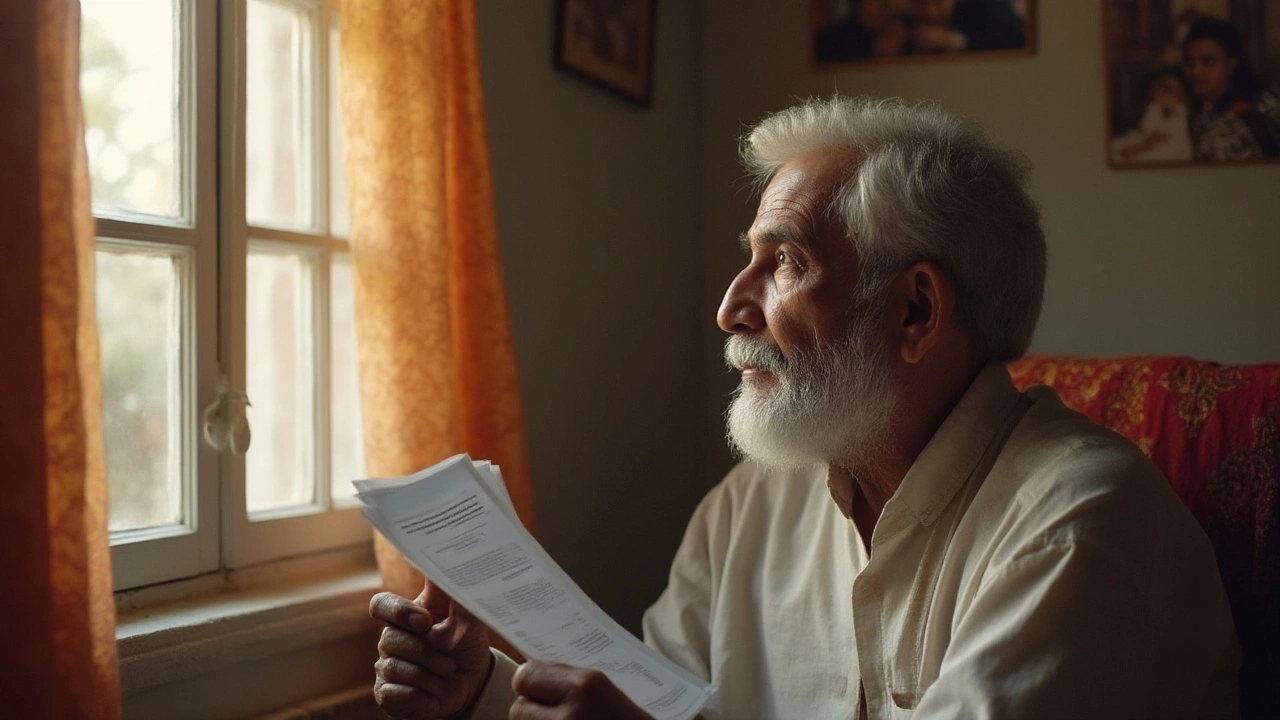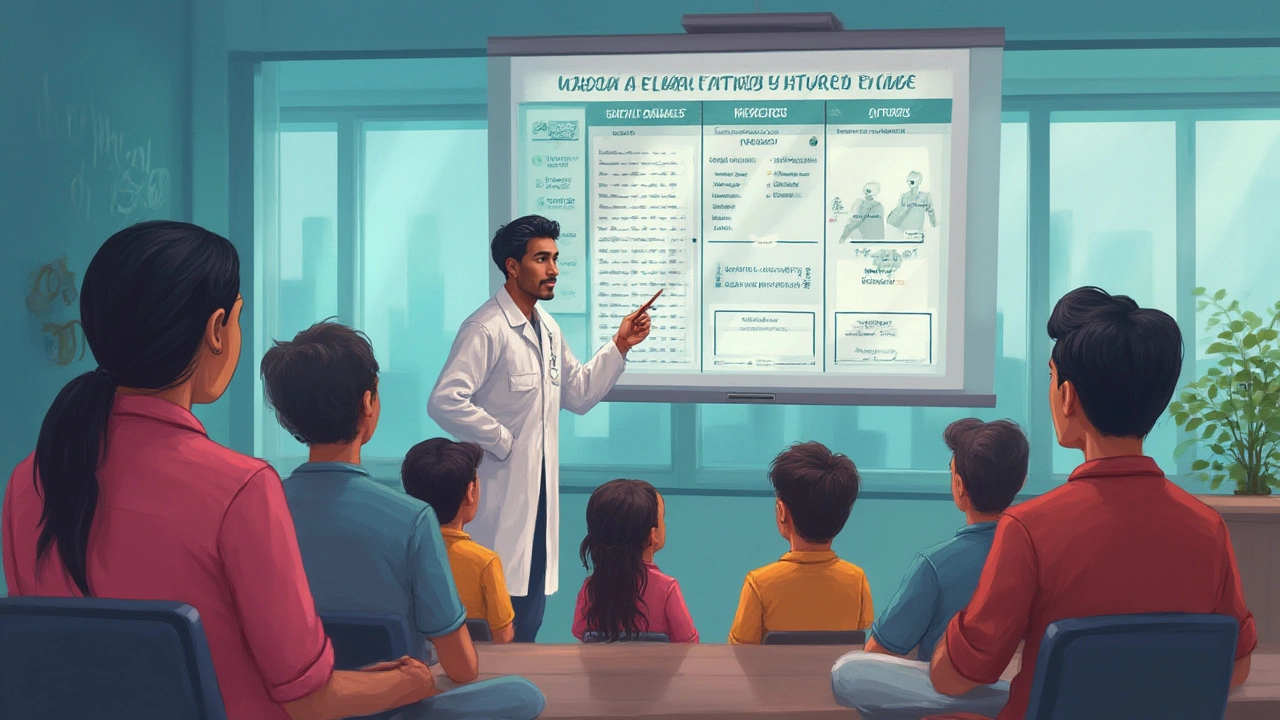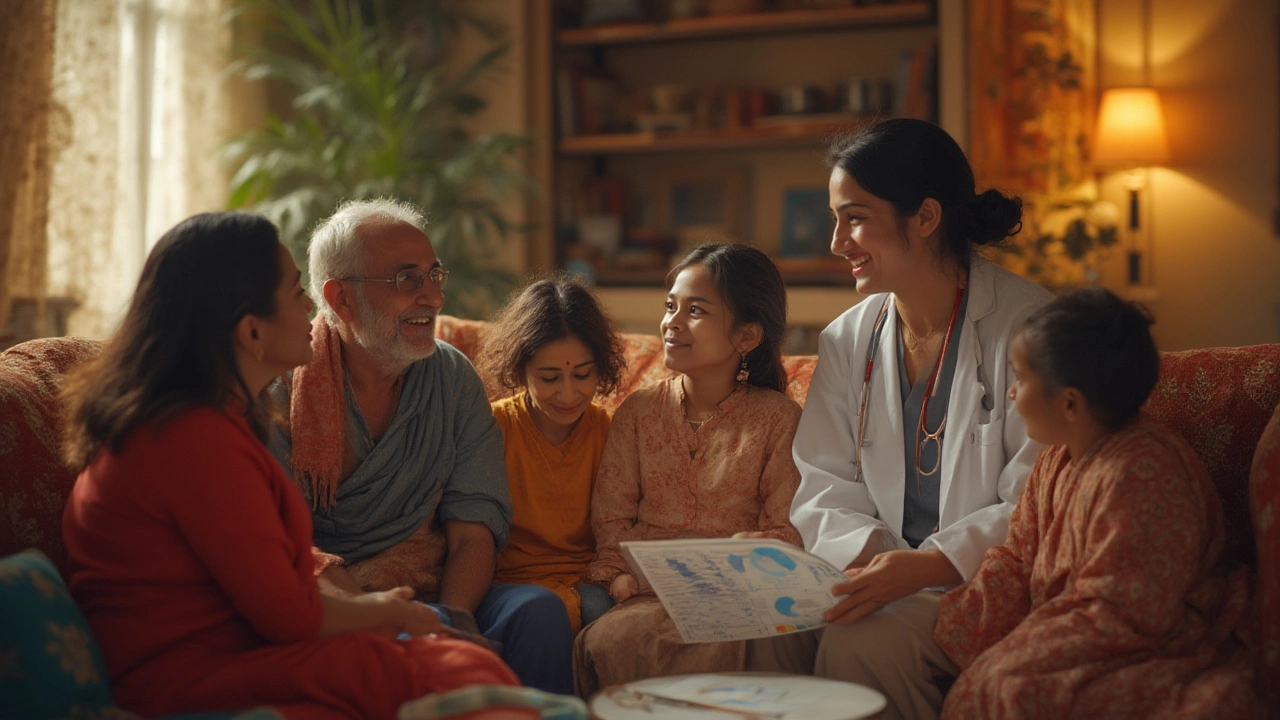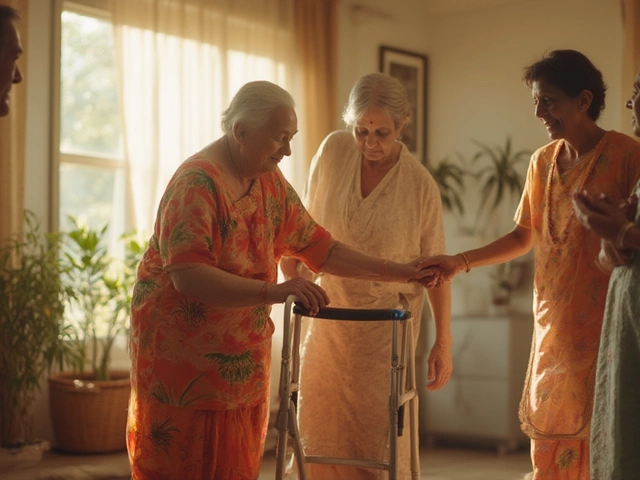Picture this: A 92-year-old man goes in for open-heart surgery and walks out stronger than people half his age. Sounds wild, right? But age, that big, looming number, doesn't always call the shots when it comes to life-saving operations. So why do so many folks—and even some doctors—think there's a secret cutoff for heart surgeries? Is there an age when the doctors say, "No more" and turn you away? The answer is way more complicated, and honestly, it's not just about what birthday cake you blew candles on last. Let's dig in, strip away the myths, and get real about who gets on that operating table and why.
Age and Open-Heart Surgery: Breaking the Myth
Ask around, and you'll hear all sorts of numbers tossed out—75, 80, 85. But here's the thing: there's no official age where doctors just stop doing open-heart surgery. What people don't realize is it's not about ticking past a certain age, but about how fit your heart, lungs, kidneys, and mind are. Cardiologists across the globe, especially in big hospitals like Mayo Clinic or Cleveland Clinic, have operated on people well into their nineties. Sure, it's way more risky than operating on a 45-year-old marathoner, but age isn't the main dealbreaker.
One solid study published in JAMA Cardiology in 2023 showed that about 10% of open-heart surgeries in the US were on people aged 80 and older. That's a huge change from 20 years ago, when folks over 75 were rarely considered for these surgeries. Hospitals have gotten smarter with anesthesia, recovery, and patient selection. Doctors now look at a person's biological age (how old your organs and cells actually "seem") instead of just your birthday. If you've got a sharp mind, can walk a block without gasping, and aren't juggling too many chronic illnesses, chances are, age is not your biggest barrier.
Take my neighbor's dad, for instance—he got triple bypassed at 84. He was one of those guys who still did his own gardening and hiked every Sunday with his grandkids. Meanwhile, a 65-year-old with severe diabetes, bad kidneys, and advanced COPD might be denied the operating room. It's about how you're doing inside, not just what's on your driver's license.
In fact, some countries have actually studied surgery success rates by decade of life. From 50 to 100+, survival rates drop as people age, but not as dramatically as you'd think. In Japan, where more folks make it to their late 80s, doctors regularly do valve replacements on people in their nineties. So if someone tells you 80 is the limit, they're quoting old news.
What Really Matters More Than Age
Alright, so if age isn't a brick wall, what IS? Doctors look at everything. First stop: frailty. Ever notice how some older folks move like they're thirty years younger? Frailty tests—like seeing if you can get up from a chair without using your hands, or how good your grip strength is—are huge predictors of how you'll handle surgery.
Other big-ticket factors: kidney function, how your lungs are working, whether you've had strokes before, and if you can bounce back after a hospital stay. If you need help getting dressed, moving around, or have memory problems, the chances of a tough recovery skyrocket. This is why the pre-surgery workup is so intense, sometimes with more tests than the surgery itself.
Hospitals use checklists (often called "comprehensive geriatric assessments") to get the full picture. They scope out what's called your "physiologic reserve"—your body’s strength to bounce back from stress. If you sail through these checks, your age won’t hold you back.
Doctors also have to weigh what kind of heart surgery you need. A single blocked artery is way simpler to fix than a complex valve job or multiple bypasses. Minimally invasive techniques—like using a robot or tiny cuts instead of cracking your chest open—are opening the door for older patients who might not have survived the old-fashioned way.
And let's not forget about support systems. If you’ve got family to care for you, like how Anjali checks every box for me when I'm sick, recovery is much smoother. Patients with good social support heal faster and have fewer complications. A lonely patient might be at higher risk, no matter their age.
- Frailty index
- Lung and kidney function
- History of strokes or cognitive decline
- Ability to do daily activities independently
- Strong support team at home

How Recovery Differs For Older Patients
So, what changes when someone over 80 goes through open-heart surgery? The recovery path is a bit different, and the risks do climb. It's pretty normal for older patients to take longer to wake up from anesthesia. Delirium (where someone gets confused after surgery) is more common—hospitals today watch for this and start gentle movement, even within hours of surgery, to help prevent it. Physical therapists, speech therapists, and even nutritionists are part of the recovery squad now.
Infections, pneumonia, and kidney problems pop up more for older patients. But guess what? When a person is active and independent before the surgery, their risk is lower. There are nifty tricks hospitals use, like warming blankets and special IV fluids, to keep older bodies stable.
About half of patients over 80 go home within 7-10 days. Some need a stint in rehab; others head home directly. A cool fact—most older patients rate their quality of life higher 6 months after surgery compared to before. It's not just about living longer; it's about living with pep.
It's tempting to focus on success rates, so here's a quick look at outcomes for different age groups:
| Age Group | 30-Day Survival | 1-Year Survival |
|---|---|---|
| Under 65 | 98% | 95% |
| 65-79 | 96% | 92% |
| 80+ | 93% | 85% |
Notice the difference, but realize the gap isn’t as wide as you’d expect. Modern medicine is closing that age gap every year. And for plenty of folks, the boost in quality of life—walking without chest pain, playing with grandkids, traveling again—is worth the temporary pain of recovery.
Trends in Heart Surgery for Older Adults
Here’s the big trend: more older folks than ever are getting a shot at heart surgery. Medical advances, less-invasive techniques, and new ways to predict risk have changed the rules. Minimally invasive valve replacements (like TAVR) are now so safe that patients in their late 80s and early 90s are common. Even open surgeries are being done in older folks who'd have been considered too risky not that long ago.
Insurance companies (even government-run ones like Medicare in the US and NHS in the UK) base decisions on individual risk, not age. If the surgery can really help the person, it will usually be offered. Some studies from Europe and Asia show that, by 2030, over a quarter of heart surgeries might be done on people over 75. Surgeons expect this number to rise as populations age and people stay healthier in their senior years.
Bigger hospitals often have special "elderly heart surgery" programs now—teams trained to monitor every detail from nutrition to sleep quality to mental health. They’ve even invented new scoring systems that combine test results, activity levels, and mental sharpness into a single number for decision-making. Robotics is opening doors for more fragile patients since procedures are less traumatic on the body.
A lot of the change comes from patients themselves. Families are more informed, ask better questions, and expect options. Ten years ago, people in their eighties were mostly offered only medicine. Today, they get the same surgeries as younger people, with tailored recoveries and more planning. If your doctor says you’re too old for heart surgery, get a second opinion at a big cardiac center. Surgeons there might see things differently.

Making the Right Decision: Questions and Tips for Families
If you’re reading this for yourself or a loved one, questions are probably swirling in your head. Should we push for surgery? Are there safer options? How risky is it? Doctors will help, but you’ve got to ask the right stuff. Here are a few must-ask questions:
- What’s the actual risk of surgery for me (not just the age average)?
- Am I a candidate for minimally invasive or robotic-assisted surgery?
- How will this improve my life compared to just taking medicine?
- How long will recovery last, and what does it involve?
- If things go wrong, what’s the plan?
- Will I need help at home after discharge?
When I sat beside Anjali's aunt in the hospital waiting room last year, these were the kinds of things we peppered the doctors with. They were honest about the rough patches ahead, but also clear on the gains. Not everyone chooses surgery, and that’s okay—sometimes medicine, a small procedure, or just comfort is the best answer. Decision-making works best when everyone sits at the table: patient, family, doctors, and sometimes even a counselor to help weigh the emotional parts.
Here’s one overlooked tip: bring a list of your daily activities and how easy or hard they are. Doctors care less about your exact age and more about whether you’re struggling to get dressed, use the stairs, or cook. These things tell them how well you'll likely bounce back.
- If you’re over 80, get a full geriatric assessment before surgery.
- Ask if there are newer, less-invasive options.
- Get your home ready—rearrange furniture, add handrails, and plan for some extra help.
- Stay active in the months before surgery; even light exercise makes a difference.
- Set realistic goals. For most older adults, the win is walking pain-free again, not running marathons.
So, does heart surgery stop at a certain age? Not at all. The real question is: How healthy are you, and how much stronger do you want to be? The calendar takes a back seat. Your best shot is teaming up with a good heart team and weighing every angle, not just the number of candles on your next birthday cake. Life, and good medicine, isn’t that cut-and-dried—and thank goodness for that.

 Most Overlooked Mental Illness: Understanding Dysthymia
Most Overlooked Mental Illness: Understanding Dysthymia
 What Doctor Prescribes Weight Loss Pills? Your Guide to the Right Specialist
What Doctor Prescribes Weight Loss Pills? Your Guide to the Right Specialist
 Can Prescription Drugs Be Ordered Online? Your Guide to Online Pharmacies
Can Prescription Drugs Be Ordered Online? Your Guide to Online Pharmacies
 Fastest Recovery Tips After Knee Replacement: Proven Strategies That Work
Fastest Recovery Tips After Knee Replacement: Proven Strategies That Work
 Fast 20‑Pound Weight Loss After 50: Proven Steps and Expert Tips
Fast 20‑Pound Weight Loss After 50: Proven Steps and Expert Tips